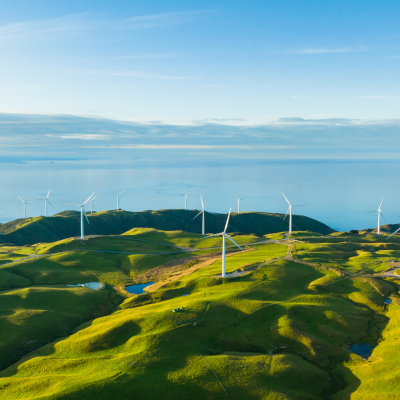It has become difficult for investors to choose investments that would remain profitable in the long run amid the recent market uncertainty due to political unrest and economic slowdown. They need to be prepared for large-scale threats that have long-lasting impact, such as the pandemic and ongoing tensions between Russia and Ukraine. A focus on sustainable solutions that would provide long-term stability is called for amid the recent geopolitical tensions, healthcare crisis, supply-chain disruptions, and energy shortages in addition to the climate crisis. Integrating sustainability factors into the investment process would enable an investor to be prepared while generating a gain on the investment.
Increased investment in climate change technologies offsets the negative impact of economic slowdown on most capital markets. With the major economies committing to achieve net-zero carbon emissions by 2050 or 2060, investing in decarbonization technologies has become critical. Investing in companies focused on decarbonization would generate positive returns in uncertain times.
The Russia-Ukraine war resulted in an energy crisis in Europe, supply-chain disruptions, and inflation in 2022. Climate-related investments surpassed general investments in terms of number of deals, amount of capital deployed and investment in funds. The momentum has continued in 2023 as investors, corporates and governments invest increasingly in deploying climate change technologies to accelerate the transition towards net-zero carbon emissions. For example, companies are investing in increasing the supply of renewable energy to reduce emissions generated from electricity production and are partnering with organisations both nationally and internationally to research and test technologies to decarbonise the manufacturing process. Investors find these investments to be lucrative in the long run and are keen to invest in such projects to reduce carbon emissions.
These investments have proved to be profitable in the past four years. Private-market equity investors launched more than 330 new sustainability, ESG, and impact funds from 2019 to end-2022, with cumulative assets under management of these funds growing threefold – from USD90bn to more than USD270bn (see figure below).

The share of climate-focused equity investment for energy transition and other climate-related technologies increased more than 2.5 times in the past four years, representing annual growth of about 40%. Investments grew by nearly 7% from 2021 to 2022 amid an economic slowdown due to the effects of the pandemic and the Russia-Ukraine war, while investment in other private-market equity deals declined by 24% (see figure below).

These climate-focused equity investments were distributed across several sectors, boosting corporates’ climate change-related efforts. The power sector received the most funding (nearly 50% of the total capital deployed from 2019 to 2022), with investment doubling from USD40bn to USD100bn, benefiting from companies investing substantially to set up renewable energy plants. The transport sector came in second, with investment increasing by 370% – from USD 6bn to USD 30bn in 2022, driven by increased adoption of electric vehicles.
The inflow of capital to climate-related initiatives has rapidly increased valuation. The median valuation-to-revenue multiple of climate-focused equity transactions in private markets increased from about 3 in 2019 to about 9 in 2022 for private equity deals and from about 10 to about 22 for venture capital deals.
The performance of climate-related equity funds from 2019 to 2022 depicted their powerful impact on a company’s growth and, in turn, on investors. This offset the negative effect of the economic slowdown on other private-equity funds. Investor sentiment is negative so far in 2023, considering the still uncertain global economy that is resulting in high inflation, elevated interest rates, supply-chain constraints, and energy shortages. Climate investing, however, is positioned strongly, continuing a growth trajectory even in a turbulent environment.
Demand for climate-focused technologies is high as companies reduce dependence on fossil fuels amid the energy shortages and commit to net-zero carbon emissions. Governments are also supporting such investments, for example, the European Union’s Green Deal (2019), Fit for 55 (2021) and RePowerEU (2022) programs have accelerated the transition to a low-carbon economy.
Conclusion
The climate investing space is growing as the number of investors and deals increases, with new climate-focused funds being launched every month. However, the pace of transitioning to climate-focused investments has yet to reach the pace required. To achieve net-zero carbon emissions by 2050, the global economy needs to be transformed and climate investing needs to be scaled up exponentially.














